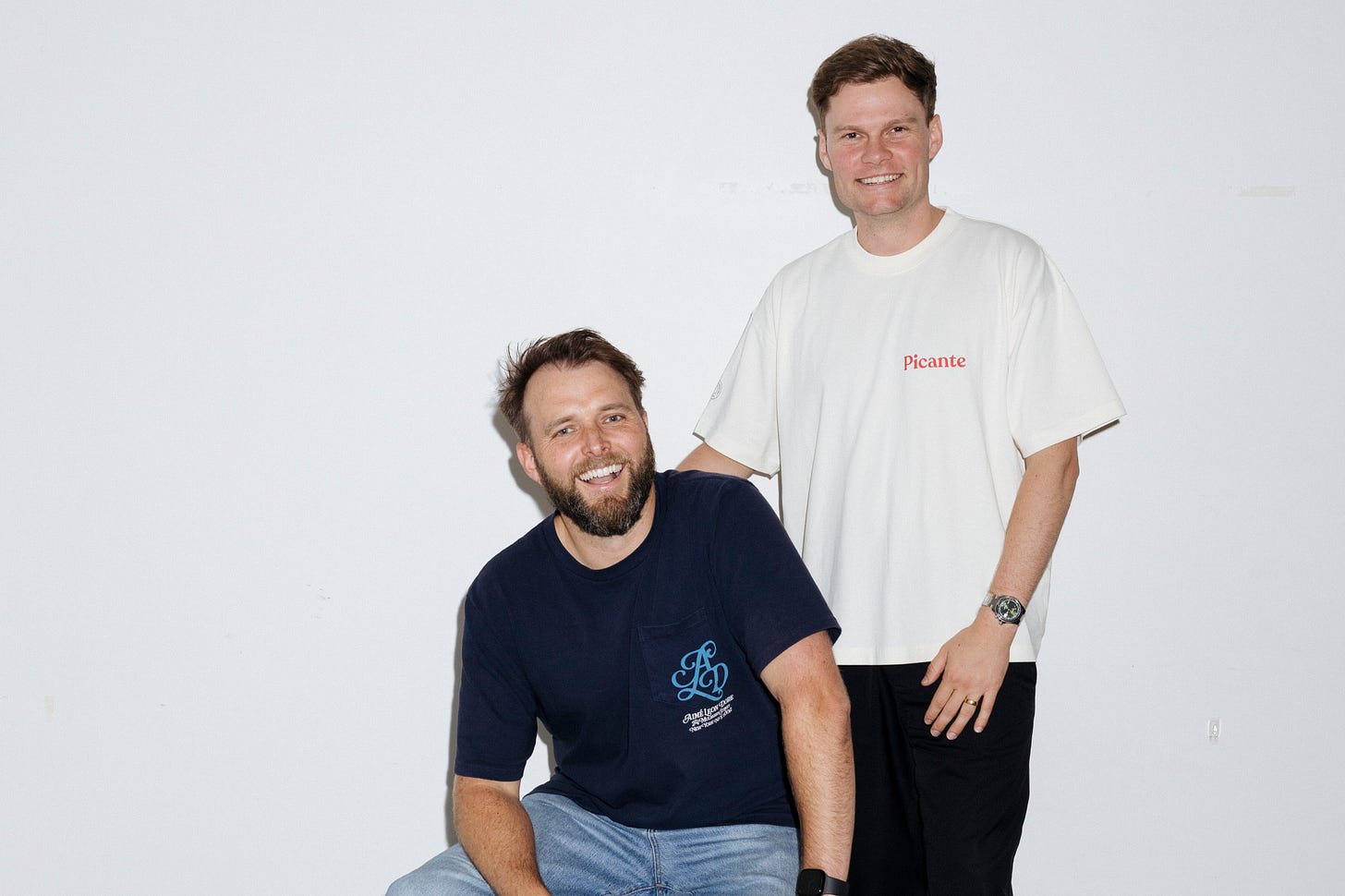Coming up next week on Caffeine
Plus: Your AMA questions answered!
Good morning Caffeinators,
Read on to take a sneak peek at what’s coming from Caffeine in the coming week for our subscribers + our partners at BNZ answer your questions on finance.
If you’ve got a story, press release, interview to pitch or just want to tell me I’m wrong about something - send it over to finn@caffeinedaily.co
If you’re interested in working with Caffeine as a partner, flick Georgia an email on: georgia@caffeinedaily.co
Have a great weekend, look after each other and we’ll see you next week.
Finn and the CAFFEINE team
Coming up on Caffeine:
Interview with Tracksuit Co-Founder and Co-CEO, Connor Archbold: Tracksuit’s success has been an absolute inspiration to watch and it was an absolute pleasure to be able to have a longer conversation with co-founder Connor Archbold about how he and his team made it happen. Check in next week to hear his lessons for founders and how he tackles the challenges that come with scale.
Guest Editorial: How to spot gaps and prove there’s a need before you build - Returning with another cracking guest editorial next week is LiveRem co-founder Kathleen Webber. See a snippet below:
“I started my first business when I was ten, though I didn’t realise it was a business at the time. I got talking to a woman at the park where I was walking my new dog, and she asked if I ever walked other dogs. Truthfully I never had, but I said yes. She said she would pay me $20 a walk every day after school.
No plan, no flyer, no pitch deck. Just a yes, a handshake, and a time.
That one walk turned into a handful, then a dozen. I saved every dollar and eventually booked myself a trip to Sydney, and later to Europe. (Still not sure how I convinced my parents to let me go alone at 15, but that’s another story.) Looking back, that was my first lesson in entrepreneurship…”
We’re excited to partner with BNZ. As New Zealand's largest business bank, BNZ shares our mission to support the next wave of founders and operators. Over the coming months, we’ll be working together to share insights, tools, and stories that help you grow smarter and faster.
Last week you sent in your finance questions - here are the answers!
When and how can a bank help my early stage start up?
It’s best to engage with your bank as early as possible, with the most common first engagement being opening a bank account and discussing how banking and debt financing works in the context of your business. Building the relationship early means that a bank is already across the ins and outs of your business, before you need to approach them for additional support. This may lead to potential networks of interest to you – Learning about interesting businesses and meeting the people behind them is the best part of our job! Additional support may come in the form of day-to-day banking offerings (e.g. credit cards, foreign currency accounts etc.), however, arguably the real value is in the connections and expertise that the bank can bring to your business in the early days, and throughout your growth journey. Ask your bank who they think would be a valuable connection for you whether it be potential customers, capital sources, industry organisations etc, based on what you’re wanting to achieve – and then ask for a warm introduction.
My bank has asked for a General Security Agreement (GSA)? What is this?
A GSA or general security agreement is a type of security that is common for a bank to require if they’re looking to provide some form of bank funding to a business. In its most simple form, a GSA is a general security charge over the business’ assets. The bank will generally always look to how their lending would be repaid through a business’ cashflow in the first instance, however, in the (worst case) scenario that a business is unable to repay lending from cashflows, a GSA allows the bank to appoint a receiver to attempt to recover their lending through realising the value of a business’ asset base. A GSA is a common form of bank security in business lending and is required in most cases (including a bank having a first ranking GSA). We have done a lot of work over the past decade understanding the assets (intangible in many cases) of startup and technology businesses.
What is a covenant? What is the point of having a covenant?
Bank lending is essentially money with rules. And covenants are part of the “rule set” that may apply to any lending.
The type of covenant will vary depending on the business, as they should be designed to focus on the key performance metrics within the business (which vary depending on the age, stage, business model, industry etc). Some examples of potential bank covenants are:
Annual Recurring Revenue Growth Rate > [x]%
Interest cover ratio: EBITDA / Interest > [3]x
Covenants are put in place to monitor business performance and provide an early warning sign where performance may not be going as planned. In technical terms, breaches of covenants present an event of review/default in relation to your lending (happy to explain more about this in a follow up AMA if of interest). Thresholds should be set at a level that allow you to operate to your plans and be well understood by you and the bank. A degree of conservatism around forecasts/budgets can be helpful to talk to alongside a growth style forecast/budget. If you anticipate that you are not going to meet a covenant, the best approach is to signal this with your bank early so you have more time to constructively work through things together, and ensure both parties are comfortable with the pathway forward.
This article is solely for information purposes. It’s not financial or other professional advice. For help, please contact BNZ or your professional adviser. No party, including BNZ, is liable for direct or indirect loss or damage resulting from the content of this article.
That’s it for today, thanks for reading. Want to get in touch with a news tip, bit of feedback or just to chat? Email hello@caffeinedaily.co. Look after yourselves this weekend and we’ll see you Monday.






